#Collaborative work environment
Explore tagged Tumblr posts
Text
just now occured to me that maybe I have vastly different expectations and presentation methods of content specifically because i got my start on wikia
#as in im more used to just creating repositories of information that others then read#in a space thats in some sense communal and interlinked in content#i have no idea how to consistently post about my work on social media like most people do#and it always feels like it goes against the grain of my brain because i want to keep everything centralized#and that i have to cater and trim it in a way that gives a reason for people to read it if they find it at all#versus people only needing to find a specific wiki of specific kinds of content where everyone contributes their ideas in the same space#its hard for me to even find and try to interact with fellow creatives on tumblr or elsewhere#it feels like such a goose chase of algorithms that demands way more energy than just being part of a wiki where people come and socialize#on their own terms and occupying a close and inherently blended environment where collaboration and interaction is much easier#maybe thats why i dont like 'advertising myself' in places either#in my wikia days people would just find my stuff and interact with me of their own volition all in the same space#it feels so weird and uncomfortable trying to pitch myself and my ideas in places where im not guaranteed reciprocation of interest#no surprise that i still prefer to structure my ideas through wikis but theyre not community spaces because tiddlywiki is 'solo' on its own#and i genuinely dont know how to bridge the gap between them and social media#im honestly wanting to just either find or create an actually communal wiki space and invite friends and mutuals to join or observe that#and maybe somehow integrate it with the wikis i already have#i just really miss being part of creative communities in a mutual way and thats the only method to organize it that makes sense to me#max yaks
6 notes
·
View notes
Text
video games made by small teams within larger AAA publishers being marketed as "indie" is such a sinister trend and i don't like it. it's like appealing to the public consciousness of what "indie" is supposed to look like while purposely obscuring who actually owns the IP
#like to be clear i'm not talking about small indie game devs occasionally collaborating with AAA publishers#to get their game out#especially if that publisher doesn't give the studio any money and doesn't have any creative control over the project#that's not any different than hiring a marketing team imo#but when the publisher actually finances and OWNS the studio and the IP?#even if it was made by a small team that's not indie.#it's like an extremely sinister obfuscation of the working environment#allowing the game to benefit from indie marketing while a big name publisher reaps the profits
4 notes
·
View notes
Text
I'm not good at programming and a big part of it is that I just have no patience when I don't understand smth, I go look at the documentation and if it doesn't immediately explain it perfectly I dramatically throw my hands in the size line "I will NEVER understand this" and throw myself on the floor, best my fists on the ground and cry and yell and then the rational part of my brain has to gently scoop me off the ground like "hey it's okay let's read up on it some more, we can check stackoverflow too shhhh it'll be okay" but rational brain is an exhausted single mother so y'know....
#programming#this is why the environment i work best in is R (with R studio) bc there the documentation is Right There#and is generally very good#but currently I'm doing an uni project with fucking chat gpt#and this is a) new so stackoverflow is less help#and b) i don't even like chat gpt#and c) we're working collaboratively so i need to only do this one specific part#but the guides all explain how to do it combined and I'm like???? but I'm not supposed to do this part? only that?#and really i know this isn't that hard i just need to do some reading and dig through the docs#but again. toddler brain simply doesn't want to
0 notes
Text
Entrepreneurial Lessons from Beekeeping: How Nature Informs Business
Harness nature's wisdom to unlock your entrepreneurial potential. Embrace change, foster sustainability, and thrive in the ever-evolving business landscape. Let nature guide your path to success.
As entrepreneurs, we are constantly seeking new ways to grow our businesses and become better leaders. One source of inspiration that often goes untapped is nature itself. By observing the natural world, we can gain valuable insights into how to run a successful and sustainable business. In this article, we will explore entrepreneurial lessons from beekeeping and how nature can inform our…

View On WordPress
#Adaptability and Resilience in Entrepreneurship#Beekeeping and Business Insights#Collaboration and Mutualism in Entrepreneurship#Effective Communication in Business#Embracing Adaptability and Continuous Learning#Entrepreneurship Lessons#Failure as a Learning Opportunity#Impacting Your Business Environment#Leveraging Technology for Business Growth#Nature&039;s Wisdom for Entrepreneurs#Nature-Inspired Business Strategies#Nurturing a Positive Work Environment#Resilience through Generalism#Sustainable Business Practices
0 notes
Text
youtube
Curious about what it's really like to work at GoTeam? Look no further! Our team member, Mariah, is sharing her personal experiences and insights with you. Discover our company culture and what makes our team special. Plus, we're hiring! Check out our career page for work-from-home, office-based, and hybrid job opportunities. Come join us and experience the GoTeam culture firsthand!
#GoTeam#Work Experience#Employee Insights#Company Culture#Team Member#Mariah#Workplace Environment#Job Satisfaction#Work-life Balance#Career Growth#Work Challenges#Collaboration#Teamwork#Leadership#Professional Development#Employee Testimonial#Workplace Diversity#Youtube
1 note
·
View note
Note
When you tag things “#abolition”, what are you referring to? Abolishing what?
Prisons, generally. Though not just physical walls of formal prisons, but also captivity, carcerality, and carceral thinking. Including migration prevention and barriers to mobility; detention; national borders; indentured servitude; inability to move due to, and labor coerced through, debt; police and policing; de facto imprisonment and isolation of the disabled and medically pathologized; privatization and enclosure of land; sacrifice zones at the periphery; the urge to punish; categories of “criminality"; (and nationalism, rent, debt, capitalism, plantation monoculture, of course); etc.
In favor of other, better lives and futures.
Specifically, I am grateful to have learned from the work of these people:
Katherine McKittrick on imaginative geographies; emotional engagement with place; legacy of imperialism/slavery in conceptions of physical space and in devaluation of other-than-human lifeforms; legacies of racism/imperialism in academia and the sciences; escaping enclosure; plantation “afterlives” and how plantation logics continue to thrive in contemporary structures/institutions like debt colonies, workplace environments, prisons, etc.; a range of rebellions through collaborative acts, refusal of the dominant order, and subversion through joy and autonomy.
Ruth Wilson Gilmore on “abolition geography”.
Macarena Gomez-Barris on landscapes as “sacrifice zones”; people condemned to live in resource extraction colonies deemed as acceptable losses; place-making and ecological consciousness; and how “the enclosure, the plantation, the ship, and the prison” are analogous spaces of captivity.
Liat Ben-Moshe on disability; informal institutionalization and incarceration of disabled people through physical limitation, social ostracization, denial of aid, and institutional disavowal; and "letting go of hegemonic knowledge of crime”.
Achille Mbembe on co-existence and care; "necropolitics" and bare life/death; historical evolution of chattel slavery into contemporary institutions through control over food, space, and definitions of life/land; the “explicit kinship between plantation slavery, colonial predation, and contemporary resource extraction” and modern institutions.
Sylvia Wynter on the “plot against the plantation”; "plantation archipelagos"; the “revolutionary demand for happiness”; "secretive histories"; the remaking of the planet after Portuguese/Spanish plantation agriculture colonies from 1450s to 1490s cemented slavery and race in European practice in ways that infected discourses, sciences, institutions, ways of thinking.
Robin Maynard on "generative refusal"; solidarity; shared experiences among homeless, incarcerated, disabled, Indigenous, Black communities; to "build community with" those who you are told to disregard in order "to re-imagine" worlds; envisioning, imagining, and then manifesting those alternative futures which are "already" here and alive.
Elizabeth DeLoughrey on indentured labor; the role of plants, food, and botany in enslaved and fugitive communities; the nineteenth-century British Empire's labor in the South Pacific and Caribbean; the twentieth-century United States mistreatment of the South Pacific; the legacy of race/empire in academia and the sciences; panoptic imperial vision through cartography and aerial surveillance; and the role of tropical islands as "laboratories" for profit-oriented planting and isolated open-air prisons for Britain and the US.
AM Kanngieser on "deep listening"; “refusal as pedagogy”; and “attunement and attentiveness” in the face of “incomprehensible” and immense “loss of people and ecologies to capitalist brutalities”.
Stefano Harney and Fred Moten on “the undercommons”; fugitivity; dis-order in academia and institutions; and sharing of knowledge; refusal; practice.
Lisa Lowe on "the intimacies of four continents" and how British politicians and planters feared that official legal abolition of chattel slavery would endanger Caribbean plantation profits, so they devised ways to import South Asian and East Asian laborers.
Ariella Aisha Azoulay on “rehearsals with others’.
Phil Neel on p0lice departments purposely targeting the poor as a way to raise municipal funds; the "suburbanization of poverty" especially in the Great Lakes region; the rise of lucrative "logistics empires" (warehousing, online order delivery, tech industries) at the edges of major urban agglomerations in "progressive" cities like Seattle dependent on "archipelagos" of poverty; and the relationship between job loss, homelessness, gentrification, and these logistics cities.
Leniqueca Welcome on Caribbean world-making; "the apocalyptic temporality" of environmental disasters and the colonial denial of possible "revolutionary futures"; limits of reformism; "infrastructures of liberation at the end of the world."; "abolition is a practice oriented toward the full realization of decolonization, postnationalism, decarceration, and environmental sustainability."
Tim Edensor on urban "ghosts" and “industrial ruins”; "haunting" in debris; searching for the “gaps” and “silences” in the official narratives of nations/institutions, to pay attention to the histories, voices, lives obscured in formal accounts.
Alison Mountz on migrant detention; "carceral archipelagoes"; and the “death of asylum”.
Ann Laura Stoler on "imperial debris" and ruination; haunting and "living in (postcolonial) ruins"; "imperialist nostalgia" and European leisure tourism as a form of intellectual/immaterial colonization related to the nineteenth-century "salvage" mission of colonial/imperial ethnography.
Elizabeth Povinelli on "geontopower"; imperial control over "life and death"; how imperial/nationalist formalization of private landownership and commodities relies on rigid definitions of dynamic ecosystems.
Pedro Neves Marques on “one planet with many worlds inside it”; “parallel futures” of Indigenous, Black, disenfranchised communities/cosmologies; and how imperial/nationalist institutions try to foreclose or prevent other possible futures by purposely obscuring or destroying histories, cosmologies, etc.
Peter Redfield on how metropolitan residents try to hide slavery and torture/punishment on the periphery of Empire; early twentieth-century French penal colony in tropical Guiana/Guyana; the torture of the prison relies on the metropolitan imagination's invocation of exotic hinterlands and racist civilization/savagery mythologies.
Iain Chambers on racism of borders; obscured and/or forgotten lives of migrants; and disrupting modernity.
Kodwo Eshun on African cosmologies and futures; “the colonial present”; and imperialist/nationalist use of “preemptive” and “predictive” power to control the official storytelling/narrative of history and to destroy alternatives.
Megan Ybarra on place-making; "site fights"; solidarity and defiance of migrant detention; and geography of abolition/incarceration.
Sophie Sapp Moore on resistance, marronage, and "forms of counterplantation life"; "plantation worlds" which continue to live in contemporary industrial resource extraction and dispossession.
Deborah Cowen on “infrastructures of empire and resistance”; imperial/nationalist control of place/space; spaces of criminality and "making a life at the edge" of the law; “fugitive infrastructures”.
Jasbir Puar on disability; debilitation; how the control of fences, borders, movement, and time management constitute conditions of de facto imprisonment; institutional control of illness/health as a weapon to "debilitate" people; how debt and chronic illness doom us to a “slow death”.
Dixa Ramirez D’Oleo on “remaining open to the gifts of the nonhuman” ecosystems; hinterlands and peripheries of empires; attentiveness to hidden landscapes/histories; defying surveillance; and building a world of mutually-flourishing companions.
Leanne Betasamosake Simpson on reciprocity; Indigenous pedagogy; abolitionism in Canada; camaraderie; solidarity; and “life-affirming” environmental relationships.
Anand Yang on "forgotten histories of Indian convicts in colonial Southeast Asia" and how the British Empire deported South Asian political prisoners to the region to simultaneously separate activists from their communities while forcing them into labor.
Avery Gordon on haunting; spectrality; the “death sentence” of being deemed “social waste” and being considered someone “without future”; "refusing" to participate; "escaping hell" and “living apart” by striking, squatting, resisting; cultivating "the many-headed hydra of the revolutionary Black Atlantic"; alternative, utopian, subjugated worldviews; despite attempts to destroy these futures, manifesting these better worlds, imagining them as "already here, alive, present."
Kanwal Hameed and Katie Natanel on "liberation pedagogy"; sharing of knowledge and subversion of colonial legacy in universities; "anticolonial feminisms"; and “spaces of solidarity, revolt, retreat, and release”.
#abolition#multispecies#ecologies#ecology#abolition post#haunting#geographic imaginaries#tidalectics#debt and debt colonies#reading recommendations#reading list#my writing i guess#indigenous#black methodologies
2K notes
·
View notes
Text
𝗛𝗼𝘄 𝗪𝗼𝗿𝗸𝗽𝗹𝗮𝗰𝗲 𝗗𝗲𝘀𝗶𝗴𝗻 𝗛𝗲𝗹𝗽𝘀 𝗥𝗲𝗰𝗿𝘂𝗶𝘁𝗶𝗻𝗴 𝗧𝗮𝗹𝗲𝗻𝘁 𝗯𝘆 𝗕𝗼𝗼𝘀𝘁𝗶𝗻𝗴 𝗘𝗻𝗴𝗮𝗴𝗲𝗺𝗲𝗻𝘁?
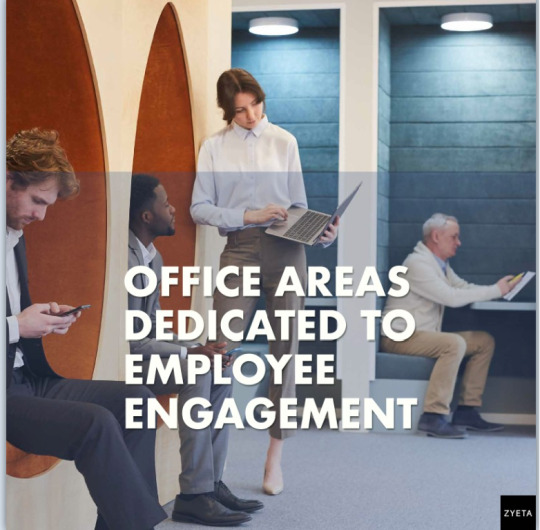
What intrigues people to work in a company? An amazing office and a group of amazing people. Now the first one is definitely a direct impact on workplace design. However, you'd be amazed to know how workplace design can help bring people together. 𝟯 𝗗𝗲𝘀𝗶𝗴𝗻𝘀 𝗧𝗵𝗮𝘁 𝗛𝗲𝗹𝗽 𝗘𝗺𝗽𝗹𝗼𝘆𝗲𝗲 𝗘𝗻𝗴𝗮𝗴𝗲𝗺𝗲𝗻𝘁 💡 𝗔𝗰𝘁𝗶𝘃𝗶𝘁𝘆-𝗕𝗮𝘀𝗲𝗱 𝗗𝗲𝘀𝗶𝗴𝗻 𝗔𝗿𝗲𝗮𝘀 Add activity-based design areas to bring agility to your workplace. These areas include flexible work setups where employees can choose a variety of workspaces based on the kind of work. Activity-based spaces empower employees to choose where they work and with whom they sit and work in the office. 💡 𝗥𝗲𝗰𝗿𝗲𝗮𝘁𝗶𝗼𝗻𝗮𝗹 𝗔𝗿𝗲𝗮𝘀 Include game/recreational areas in your office to ensure your employees are working hard and playing. Include board games and table game setups. You can also integrate interactive wall designs to bring in employee engagement. 💡 𝗟𝗼𝘂𝗻𝗴𝗲 𝗔𝗿𝗲𝗮𝘀 To add a more casual vibe to your workplace, you can include lounge areas like in cafes to encourage informal interactions.
0 notes
Photo
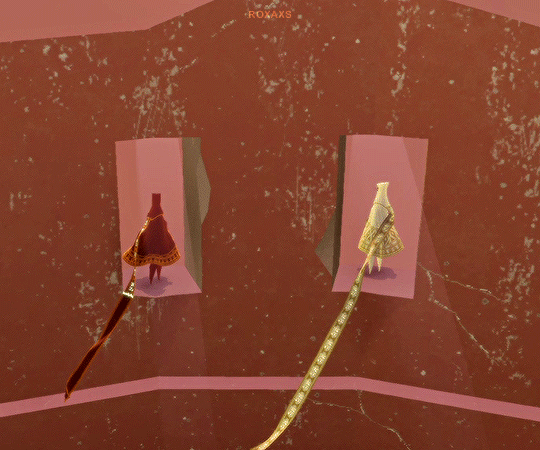

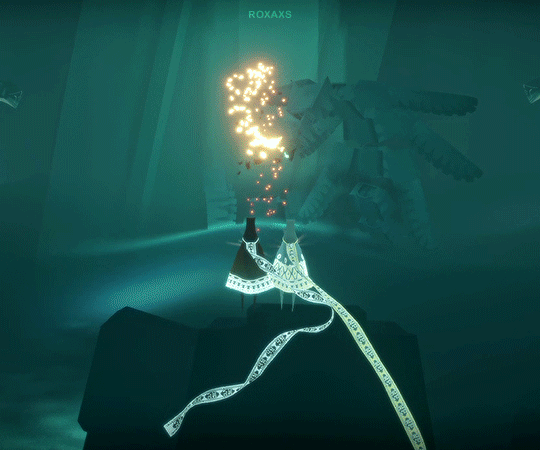
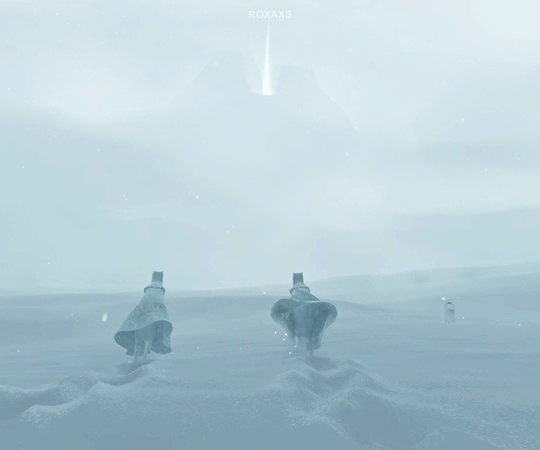

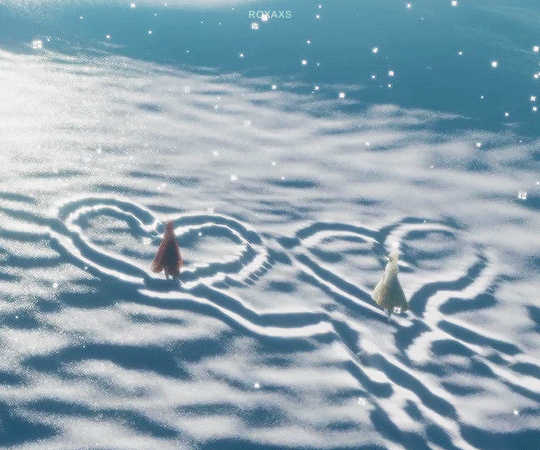
The project is all about creating an environment to inspire players to work collaboratively, to really be together and go through an emotional journey, so that in the end, they actually like and will miss each other. - Jenova Chen, co-founder of thatgamecompany
#journeyedit#journey#gamingedit#gamingnetwork#dailygaming#dailyvideogames#*#journey is really THAT game huh#thank you user Re******* wherever and whoever you are for the amazing experience and for showing me around <3
3K notes
·
View notes
Text
~ Astro Observations ~


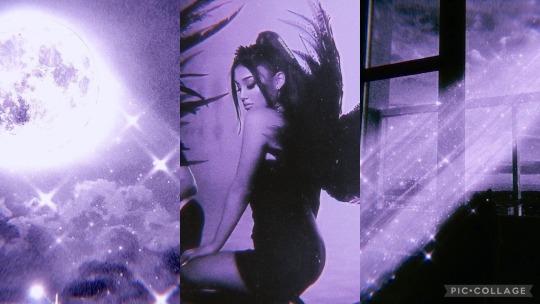


Saturn is known as the protector planet as it rules over barriers, restrictions, delays, limits & any protection that can be forced. Look at your chart to see where you will experience the most setbacks yet are protected. For instance, I've noticed someone with Saturn in the 6th house is very hard working and often puts in twice the work to get places, but they can experience setbacks with their colleagues nitpicking or criticizing them. But they are usually protected, their hard work pays off, or they always thrive. I see A LOT of famous people with Saturn in the 6th house.
Libra risings like people who are like themselves or else they completely avoid those who are obnoxious and aggressive as it appalls them. Yet, I commonly see them drawing in these individuals at the same time. Best rising for enemies to lovers as the main protagonist just doing their thing unbothered until an aries rising shows up lmao.
I notice the type of people we are attracted to reflect our 1st or 7th house in some way. For instance I have Venus in 1st and I always attract Aries rising & Mars in 1st house people. I noticed the same for someone who had Moon in their 1st house commonly attracting Capricorn risings or those with Saturn in their 1st house.
The sun sign is actually very important in your chart and isn't just some hocus pocus bogus crap found in magazine horoscopes. From my observations I've developed a theory that Mutable signs adapt using their sun signs qualities they usually start off HATING but find it necessary to utilize for their own personal power. Cardinal Signs seem to dislike their sun signs qualities and chase after everything using THE OPPOSITE qualities of their sign. It's when they use their sun signs qualities to their advantage they will find their initiations successful. While fixed signs struggle the most to master their own sun signs qualities as it sticks with them through and through, they relate the most to their sun sign as these qualities are something inate they use to identify themselves. However, they struggle to figure out how to use their qualities in a positive light as they can easily get stuck in a cycle.
Ex, a lot of Virgo euns hated cleaning or organizing themselves using lists as they were younger but later adapted because of the many health problems this sign usually experiences so found it necessary
Ex, Cancer suns tend to ignore their emotions and lash out at others being deemed insensitive so they focus on Detachment when really they should be utilizing their magnetism and intuition through human connection as they are the sign with the most power over others emotions.
Ex, Aquarius suns struggle with seeing the use of collaboration with others opinions and applying their innovative thoughts towards real life skills. They can get stuck in a constant pattern of not feeling accepted or heard. But mastering their creative thinking and differences to use positively will give them the most recognition.
Conclusion:
Mutable sun sign = Adapting to your Qualities
Cardinal sun sign = initiating your Qualities.
Fixed sun sign = Mastering your Qualities.
This is also why imo it's the hardest to spot a mutable sun sign as they're usually farther away from Adapting to their sun signs qualities until they've gotten more experience in life. Usually looking at the general themes in their life can help you identify them the easier.
Ex, Gemini suns are focused on developing communication skills and confidence in their socializing capabilities.
Ex, Pisces suns usually deals with people taking their dreams for granted and is most likely influenced by a harsh or strict environment.

In Solar Return Charts the most common house placements tend to be the 1st House, 6th House, 7th House and 10th House. ESPECIALLY 1ST & 6TH HOUSE! This is because most of our years are focused on the tangible and everyday aspects of our lives which is ruled by the 6th house, our public person and career is the 10th House, and focusing on ourselves is our 1st House.
If you're a student I frequently see 3rd, 5th, 6th, 8th & 9th Houses filled in solar return charts. The 3rd/5th/9th Houses are all about acquiring skills, learning from what's in front of you, hobbies and pleasure, and higher knowledge or lessons to be taught that bring about movement in your life. I also included 6th house because that's our daily life + physical health while the 8th house is about our mental health so it makes sense why students often have that house filled...
Wanna find out how to turn your creative thinking into a weapon and utilize it for success? Pallas (2) can show what you're naturally gifted at intellectually.
Pallas is the asteroid representing Athena goddess of war, strategy, knowledge & creative thinking. I've seen this asteroid work wonders tbh. My friend has it in Libra 12th House and she's a visual artist mastermind. She can piece any aesthetic or visual together like a puzzle.
If you want to manifest any desires, look at your 11th house! This house rules our wishes and what is rewarded after we've put hard work into it. Finding direction will be much easier to achieve if you look at your 11th house and what it's telling you to work for. Basically I've seen Pluto in 11th = earning power over people, Saturn in 11th = earning respect and titles, Venus in 11th = earning love or money (wealth indicator), Neptune in 11th = earning a prophecy, deep undivided loyalty & glamour, Mercury in 11th = earning your name to be widespread, knowledge & fast results.
I'd say Mercury in the 11th is a big "viral celebrity" placement as they can easily do something and everyone knows their name overnight. Also good for scholars!
The 12th house is also known as the house of Loss. Your planets, sign & rulership could determine what you end up sacrificing or leaving behind. For example, Cancer in 12th could often leave their homes or roots, they usually experience family loss early too. Scorpio in 12th house loses their fear, finances & secrets easily (beware of who you let talk to you). And Sagittarius in 12th house can lose their freedom, knowledge acquired, and faith in others.
The most copied people tend to be Scorpio risings, Pisces risings, Pluto in 1st house, Neptune in 1st house and 12th House placements. That's because with Scorpio energy in the 1st house their identity is literally exploited and used for power dynamics (legit had my friend catfished a bit ago and she has an 8° sag rising with Pluto in 1st conjunct her ascendant). And Pisces energy around the 1st House because people have no barriers with you and feel entitled to take your identity. It can almost feel like a sacrifice of themselves for Pisces rising or those with Neptune in 1st house (ex, Marilyn Monroe & Kim Kardashian, it's not a mistake they both have Neptune in 1st house).
Differences between the angular houses cuz I know we get these mixed up easily:
Your 1st house = How you identify yourself in the world.
Your 4th House = Your roots and how you grow into the world.
Your 7th House = How others identity you, your close connections.
Your 10th House = What you're known for, your reputation.
The houses of legacys are 4th, 8th & 10th. This is your history and how you make your mark on the world, how you will be remembered, and your title in the word.
8th house placements is what we knowingly gatekeep from the world, and the house rulership tells just as much if it's empty. Rich people usually have Jupiter in the 8th house because they are quite literally gatekeeping their wisdom, knowledge, gifts & MASS amounts of power. They also receive money randomly sometimes and have fabulous luck with stocks or investments.
Usually people with Moon in the 8th House tend to be reserved with their deepest emotions and family life. They can often take the longest to open up or trust others as they're used to being blackmailed or having their emotional security taken away from them.
Countries' rising signs MAKES A LOT OF SENSE. Russia has a Scorpio rising (known for intelligence agencies, spies, and cold environment...also destruction of the USSR), the USA has a Sagittarius rising (known for freedom, boldness & diversity...also aggression lol) & Britain is a Libra rising (country known for its fashion, etiquette and tea, its so libra LMAO)
Sun sextile Mars is the best aspect for a natural leader. You know how to utilize your individuality to stand out during competition and you also naturally bring out shining qualities in the people you lead. You take challenges to your ego with ease and although passionate you still remain assured and unbothered by threats. Also high sex drive is present here

A lot of psychics have Moon sextile Neptune because they access otherworldly feelings subconsciously without blockages. And are both Water and Fire dominant. Water rules unconscious and flowing emotions, while Fire represents intuition and gut feelings hence "follow your heart" being their motto.
In general looking at your Moon placement is THE MOST important when figuring out your intuitive abilities as the Moon is the unconscious mind & your personal feelings and behavior. You could determine what suits you best with this!
Ex, Mercury aspecting Moon does well with Tarot & Oracle or any divination that requires pattern connections and using your hands
Ex, Pluto aspecting Moon might be able to talk to ancestors, spirits, and gain information about dangerous events
Ex, Venus aspecting Moon would be great for Glamour magic, Love spells, WEALTH MANIFESTATIONS, and herbalism!! TEA READINGS LOL
I need to stop with Libra & Tea �� istg Tea is ruled by Libra & Neptune BUT THATS JUST MY INTRUSIVE THOUGHTS COMING THRU.
I don't necessarily believe in everything I listed or think it's all good practices like Love magic but I wanted to help you develop an idea of how each planet can be connected for practical use.
I feel like Uranus is actually a hard planet to understand and sometimes value in everyday life because it's just so...out there LOL. Like it's described as sudden surprises, rebellion, electricity, revolution & eccentricity. It's just a hard planet to relate to in general because it's the opposite of conformity so applying it in your life is umm confusing to say the least lol.
Basically I look at Uranus as sudden ups & downs, where we grow FAST but where we get knocked down BAD too. I literally think cancel culture would be ruled by Uranus ngl LOL. It's unpredictable and awakens or shakes up whatever it aspects.
So Uranus aspecting Venus would cause a turbulent love life, a somewhat Detached or Hypersexual character, Very wealthy and a visionary in fashion or with money. But alsoooo struggles to maintain relationships or struggles A LOT with self love.
TW but I've often seen those with Uranus in 2nd & 6th House struggle the most with body dysmorphia and weight fluctuation. Your health can always spike up and down too. It's because these houses rule over our self-worth, body and physical health. Therefore, sometimes it can really shake your eating habits up which would obviously cause a struggle in your mental health.
However I've also seen some of the MOST inflated egos come from people with Uranus in 2nd House. Again the unpredictability and sudden Shockwave to your confidence with Uranus can literally make you feel like God or sunken. It's VERY drastic.
Oppositions to the Ascendant, also known as Conjunctions to the Descendant are qualities we possess that others DON'T accept us for and often make us feel insecure. Lilith Opposite Ascendant would probably be heavily shamed for their promiscuity and manipulative behavior. While Uranus opposite ascendant would be ridiculed for their Weirdness or Intelligence. People would label them as crazy lol�� (totally not me).
Also if you have Uranus aspecting the Ascendant or Mars you are VERY clumsy and accident prone LMAO�� your movements literally come off as a shockwave to others and everything around you. It's just one step and all of a sudden a whole clothing rack comes falling down. Uranus does rule Natural Disasters so...are we even surprised?
When looking at your Solar Return Chart it's not just Pluto to be concerned about BUT CHIRON. This asteroid is the wounded healer meaning it will detail the wounds you have to recover from and face that year. Chiron also highlights where we feel or are literally rejected so...check that fr.
The saddest Chiron placement imo is in the 1st & 4th House. Because your identity and self expression is rejected with the 1st house, while in the 4th house you could be outcasted by your own family and feel blocked put from any form of emotional security.
An example of what I think is a good example of significant Chiron energy would be Selena Gomez and her Venus conjunct Chiron at a 1° orb in Leo 1st house. Basically it shows up as her body being rejected, women rejecting her, and her own creative projects or indivuality feeling rejected. She probably is very self-deprecative because of this as she never feels her appearance or identity is good enough.
Chiron in 1st House people also get copied lots...just sayin
Women tend to be VERY jealous of those with Venus or Moon aspecting Chiron because they view that individual as wounding their views of femininity and project their insecurities onto them. The women with Venus/Moon aspecting Chiron placements are seen in general as being too vulnerable or soft which are stereotypical feminine qualities a lot of women can feel resentment towards brought on by the ✨️Patriarchy✨️
Marilyn Monroe also has Venus conjunct Chiron...��
So does Jessica Alba, Olivia Rodrigo and Kurt Cobain.
Their lovesick songs PLZ what's more Venus conjunct Chiron than that�� excluding miss Alba lol.
The same goes for women with Sun & Mars aspecting Chiron. Men are usually jealous of their success and degrade them because they see them as a threat to their masculinity.
Fun fact: The 4th House rules over the Father while the 10th house rules over the Mother in family astrology. Although I generally always saw the Moon sign as the most accurate representation of the maternal figure in your life but I found the above on astrology websites.
I also found some sources saying the 10th house actually rules your dominant parent? It's a whole debate on Google but it did say the 10th house rules the Mother in my astrology books so...idk I see it. Let me know in the comments your thoughts!
And to end this off, let me know your rising sign degree and I will try to guess your favorite colour to wear lol

#astrology#astro observations#astrology observations#astro observation#astrology observation#astro community#astrology community#astro chart#12 signs#zodiac#zodiac sign#horoscope#zodiac signs#astro musings#astro notes#astrology notes#astro note#asteroid astrology#astro tips#astrology signs#astroblr#leo#scorpio#libra#sagittarius#taurus#gemini#pisces#aquarius#capricorn
2K notes
·
View notes
Text
Aries and where you are the most independent
×Please take into consideration that what i talk about in this post may be affected by your other placements and aspects×
Aries 1h-You are overall independent and have a strong sense of identity!You knew who you were from a very young age and your ideas and the way you present yourself are very unique.You got a pioneer spirit and might be a trend setter(without even knowing🤭).On a darker note,you might have been ostracized or even bullied growing up for your uniqueness and people tend to react in an agressive way to your ideas.
Aries 2h-You are financially independent(or will be)!But even as a child,you knew how to manage your money and things.You don't need somebody else to tell you your worth,as you have a lot of trust in yourself.You might also have a very unique voice that makes you stand out.The negative side here is that you don't know how to ask for help,be it money matters or a boost of confidence.You might also find that your values are very different from the ones of your peers.
Aries 3h-You are an independent thinker!You might also be an only child or the older sibling.On rare occasions,you might've grew up in a neightborhood where there weren't many children besides yourself.You are a very fast thinker and always come up with new ideas.The negative side is that you had a very different way of learning from your classmates and in class,you either felt bored or left behind.This placement also makes it hard for you to collaborate with other people and might indicate a dangerous or aggresive environment(school or neightborhood).
Aries 4h-You are independent from your family!In my opinion,its a pretty difficult placement to have,as you didn't grew up with a sense of unity in your family and no matter the circumstances its hard for you to truly feel like you belong.Might also indicate a violent childhood and family life,usually from the mother's part.On a brighter note,the independence you were taught in your childhood will help you later on in your adult life,as your already know your way around things.Also,you might find that you will create a "soul family" later on in life with people you care about,so don't lose hope,you are not alone!
Aries 5h-You are independent in your hobbies!You don't need other people to enjoy yourself and just like aries 3h,you might have been an only child.(For 18+)You don't mind the idea of quick flings and are a pretty adventurous person on this part.You might have had a few partners throughout your life.Allthough you are not really good at "being part of a team",you are very creative and are good at expressing yourself in a very unique way.The negative side here is that you often feel lonely when it comes to your interests,as not many people from your area share the same prefrences and skills as you,and others often feel the need to compete with you in any activity you do.
Aries 6h-You are independent in your daily routine!Even as a child,you were left to deal with things on your own,especially when it comes to health matters.You needed to learn how to schedule appointments and take care of yourself,all on your own.On the good side,your body is vey healthy and you are very intuitive when it comes to your needs.When it comes to your work environment,the people are competitive and often times,you are left on your own,not having many colleagues friends,but you are a very hard worker and its not hard for you to get a promotion if you really put your mind to it.Overall,its not hard for you to find motivation in your day-to-day life.
Aries 7h-You are independent in your relationships!Allthough your partnerships might suffer a lot because of that.You are not one to always think about love and relationships and are pretty happy on your own.Even tho this might make you a bit sellfish at times.Its pretty difficult for you to express your affection in relationships,and often tease your partners.Nonetheless,you are a very dedicated and protective lover and will always fight for love once you find it.Also,you might not really like the idea of "bussines partners" and you prefer to work by yourself.
Aries 8h-You are independent when it comes to your vulnerability!Not many people were there for you when you felt exausted or just needed a good cry,and that made you very closed off.This also made you hyper-independent in your romatic relationships and friendships.You were often left to deal with your "demons" on your own,and this made you pretty scared of your shadow side.When it comes to your shared resources,you might often find yourself as the provider in your relationships.(For 18+)Also,you might have a few kinks that you don't share with other people you know(BDSM,hair-pulling, scratching etc.)
Aries 9h-You are an independent learner!Your most important experiences and adventures are done by yourself.You didn't really had a lot of people to learn from when you were younger and had to teach yourself many things.Especially when it comes to your interests.Your belief-system was also formed based on this.You grew up thinking you NEED to be independent at all costs,and that made you a bit fickle as a person.You might also be/have been very independent in university or college,meaning you most probably had a job and payed for your things with your own money.If not,this was the time when your sense of independence was formed.
Aries 10h-You are independent in your career!And since this is the MC,you might also have a reputation of being independent.Your long-term goals don't usually include other people(so relationships are not one of your aspirations).Also,your career might require you to be independent.Another thing would be that your father taught you how to be independent(it depends on your relationship if in a healthy way or a neglectful way).
Aries 11h-You are independent in social groups!You will often find that your goals and dreams are different from those of your peers,and this means that the path you took to get to them was pretty lonely.You also find riots to be very important,as you often fight against the system.You have the power to reshape and change the world,but that will usually be done by yourself.Also,you are pretty independent from your friendgroups or any social community.You don't like to identify yourself as part of something and often this means that you have a lot of friends but never one main friend group.
Aries 12h-You are independent in your beliefs!Some themes here are pretty similar to those of aries 9h,as they are both Jupiter houses!You will find that your beliefs about spirituality,the afterlife and the way your subconcious works will be pretty different from the ones of other people and this will often put you in tense situations where you will have to fight for what you believe in,as you will be challenged a lot.On a darker note,you might live in a constant fight or flight mode and have mental health issues.Whenever a chapter of your life ends you will also feel pretty alone,and might have the tendency to retreat yourself.You are also scared to share your secrets with other people or rely on them for that matter,which further leads to your "i'm on my own,i need to be independent" attitude.You will also find that a lot of your dreams will have themes related to independence.
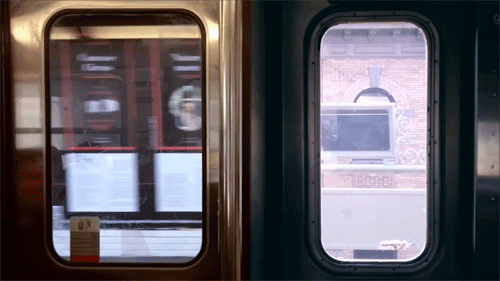
2K notes
·
View notes
Text
ok have gone to the gym and now I am going to shower and then start reading this book about play therapy techniques with adults... and then go to this work social event which I hope will be fine and not awkward
#im doing RESEARCH#because.. maybe i actually will write a book#and my writing group friend’s partner who is a social worker#suggested looking into this field bc so much of what i am writing about has to do with#how play and playfulness in groups or in the classroom can help lower social barriers + facilitate deep learning +#create environments that are more conducive to collaborative imaginative work
7 notes
·
View notes
Text
Slow-burn love • Astro observations (Synastry / Composite)
Slow-burn love takes time to grow but deeply roots itself in the hearts and minds of couple.
Intimacy is not a sudden burst of energy, but rather a gradual flame that is nurtured through the cultivation of shared values, vulnerability, respect, and authenticity over time.
✧✧✧✧
This is just my personal take from what I've seen and been through. The compatibility depends on how the two aspects play off each other.
✧✧✧✧
Photo credit : @le.sinex
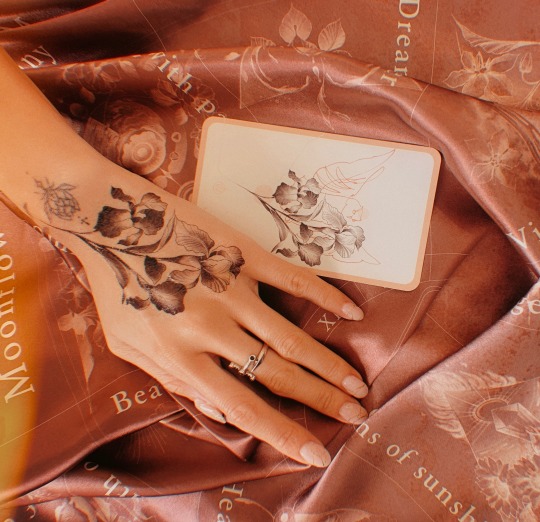
11H synastry • Venus in 11H
Sun in 4H, 11H synastry
Mars in 10H synastry
Pluto in 7H in composite
Stellium in Composite : 6H , 9H, 11H
Earth elements stellium
Capricorn placement in composite
Taurus placement in personal planet
Juno / Neptune aspect
Mars / Venus aspect
Mars / Uranus aspect
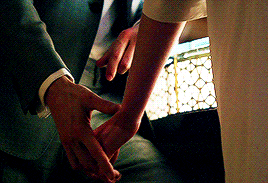
❥ Pluto in 7H in composite
The combination can create a secretive and captivating story.
Pluto represents secrets and mystery, as it holds the deepest aspects, the secret spaces, and the hidden motivations. When Pluto falls in the 7th House of a composite or synastry chart, it indicates that the relationship between two people has a naturally deep tone to it.
This yearns for depth, intensity, and serious exploration into all the ways of being in a long-term close partnership. Such a relationship seeks to resolve any and all wounds in the relationship and develop a truly interdependent relationship filled with wholeness for each person as well as the relationship itself.
Pluto in the 7th House can signify that the relationship is shrouded in secrecy and filled with hidden desires and motivations. This can create a sense of forbidden love, as the intense emotions and deep connections between the couple may be perceived as taboo by others. The slow burn of the relationship may also add to the tension, as the couple navigates the complex layers of their feelings for one another.
Ultimately, the relationship has the potential to be transformative, as the couple delves deep into the inner workings of themselves and their relationship to create a strong and lasting bond.
❥❥❥❥
❥ Capricorn placement in composite
The key aspects emphasized in this context are cooperation, results-driven approach, behavior awareness, inner values, and hard work. The focus is on cultivating a work environment where individuals work together towards achieving common goals and objectives. This requires a high level of collaboration, communication, and mutual respect.
The relationship between colleagues is akin to that of work buddies, where they support each other in achieving their targets. If their aspects allowed, it will be a colleagues to lovers relationship.
They are expected to be aware of their behavior and its impact on others. They are encouraged to develop their inner values which are reflected in their actions and decisions. Hard work is highly valued and recognized as a key driver of success.
The foundation of a successful work buddy relationship is built on trust. This is established through promises made and commitments upheld. When they deliver on their promises and fulfill their commitments, they demonstrate their reliability and build trust with their colleagues. This, in turn, creates a positive relationship where they feel valued, respected, and motivated to perform at their best.
❥❥❥❥
❥ Taurus placement in personal planet
Taurus has a peaceful and harmonious influence from Venus, which reflects in their approach to love and relationships. Their love language is expressed through a serene and natural demeanor, where they quietly take care of their loved ones. They do not prefer extravagant displays of affection or grand romantic gestures, but instead, they show their love through practical actions and gestures.
Taurus is known for their refined taste and appreciation for quality over quantity. They prefer simple, yet sophisticated experiences that hold meaning and value, over superficial and lavish ones. They have an eye for beauty, whether it is in nature, music, or art. They are not drawn to luxury for the sake of it, but rather as a way to enhance their enjoyment of life.
Stability, security, and comfort are highly valued by Taurus in their relationships. They seek a partner who shares their values and is willing to forge a strong and long-lasting connection based on trust, respect, and authenticity.
•┈┈┈┈┈┈┈┈┈┈┈┈•
Houses show areas of life impacted and aspects describe the effect and compatibility.
To determine if the connection will work, consider the full chart.
Masterlist @botanicalsword
#astrology#astro community#astro posts#overlays#synastry#synastry observations#8 house synastry#astro observations#astro#8h synastry#slow burn#composite chart#astrology placements#astrology notes#astrology observations#astrology placement#astro notes#venus synastry#mars synastry#moon synastry#6 house synastry#sun synastry#house synastry#asteroid synastry
868 notes
·
View notes
Text
Juno Placements (Synastry Chart)
Juno (3) symbolizes marriage, partnership, and commitment. Its placement in a synastry chart highlights the qualities and dynamics that both partners seek in a long-term partnership. Juno's influence can reveal the areas where both partners are likely to experience growth and fulfillment through their commitment to each other, as well as the potential challenges and lessons that may arise in their relationship.
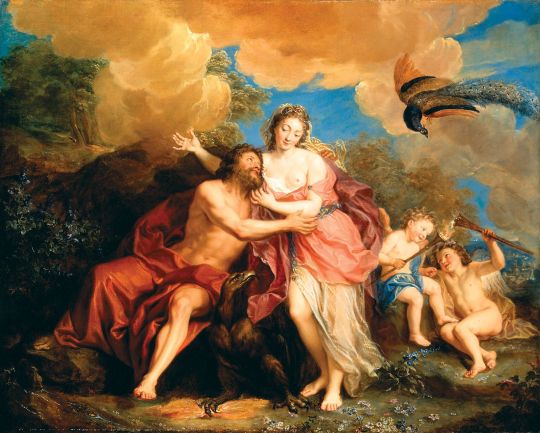
1st House: Partner A's Juno in Partner B's 1st house suggests a strong focus on commitment and partnership in their relationship. Partner B may embody qualities and traits that align with Partner A's ideal of a committed partner. This placement emphasizes a sense of equality, mutual respect, and cooperation in their partnership. Partner A may see Partner B as their ideal life partner, valuing their individuality and appreciating their unique qualities.
2nd House: In Partner B's 2nd house, Partner A's Juno placement influences matters related to values, material resources, and personal security. Partner B may find a sense of emotional security and stability through their partnership with Partner A. This placement encourages a shared sense of financial responsibility, mutual support in practical matters, and a focus on building a solid foundation for their relationship. Partner A may see Partner B as a valuable and dependable partner who shares their values and priorities.
3rd House: Partner A's Juno in Partner B's 3rd house emphasizes communication, intellectual connection, and shared interests in their relationship. Partner B may appreciate the mental stimulation and intellectual compatibility they experience with Partner A. This placement encourages frequent and open communication, shared intellectual pursuits, and a strong mental bond between them. Partner A may see Partner B as a stimulating and engaging partner with whom they can share ideas, thoughts, and intellectual interests.
4th House: With Partner A's Juno in Partner B's 4th house, there is a focus on emotional connection, family, and domestic life in their relationship. Partner B may prioritize building a nurturing and emotionally secure home environment with Partner A. This placement encourages a deep emotional bond, shared commitment to family and home, and a sense of emotional stability within their partnership. Partner A may see Partner B as their ideal life partner who creates a loving and supportive home environment.
5th House: In Partner B's 5th house, Partner A's Juno placement influences matters related to creativity, self-expression, and romance. Partner B may experience a strong sense of joy, passion, and creativity in their partnership with Partner A. This placement encourages a playful and romantic connection, shared creative projects, and a focus on enjoying life's pleasures together. Partner A may see Partner B as their ideal partner for experiencing love, romance, and creative self-expression.
6th House: Partner A's Juno in Partner B's 6th house influences matters related to work, daily routines, and health in their relationship. Partner B may appreciate the practical support and dedication they receive from Partner A in these areas. This placement encourages a shared sense of responsibility, mutual assistance in daily tasks, and a focus on maintaining a healthy and balanced lifestyle. Partner A may see Partner B as their ideal partner for collaboration, work-life balance, and mutual support in their daily routines.

7th House: With Partner A's Juno in Partner B's 7th house, there is a strong emphasis on commitment, partnership, and marriage in their relationship. Partner B may view their partnership with Partner A as a central aspect of their life. This placement encourages a deep commitment to each other, a sense of equality and balance, and a focus on nurturing a harmonious and supportive partnership. Partner A may see Partner B as their ideal life partner, valuing their commitment, cooperation, and ability to form a strong bond.
8th House: In Partner B's 8th house, Partner A's Juno placement influences matters related to intimacy, shared resources, and transformation in their relationship. Partner B may experience a deep and transformative connection with Partner A, both on an emotional and sexual level. This placement encourages a profound emotional bond, shared financial responsibility, and a focus on growth and transformation within their partnership. Partner A may see Partner B as their ideal partner for experiencing deep emotional intimacy and navigating life's challenges together.
9th House: Partner A's Juno in Partner B's 9th house emphasizes matters related to travel, higher education, and belief systems in their relationship. Partner B may appreciate the sense of adventure and intellectual stimulation they experience with Partner A. This placement encourages shared interests in exploring new horizons, engaging in philosophical discussions, and expanding their knowledge and beliefs together. Partner A may see Partner B as their ideal partner for exploring new perspectives, embarking on exciting adventures, and broadening their horizons.
10th House: With Partner A's Juno in Partner B's 10th house, there is a focus on shared goals, public image, and career aspirations in their relationship. Partner B may see their partnership with Partner A as instrumental in achieving their professional ambitions. This placement encourages a strong sense of mutual support, shared ambition, and a focus on building a solid reputation and success together. Partner A may see Partner B as their ideal partner for pursuing their career goals and establishing a prominent public image.
11th House: In Partner B's 11th house, Partner A's Juno placement influences matters related to friendship, social networks, and collective ideals in their relationship. Partner B may view their partnership with Partner A as an integral part of their social life and network. This placement encourages shared goals and visions, active participation in social causes, and a sense of belonging within a community. Partner A may see Partner B as their ideal partner for creating a positive impact on society and fostering meaningful connections.
12th House: Partner A's Juno in Partner B's 12th house influences matters related to spirituality, hidden realms, and subconscious patterns in their relationship. Partner B may experience a deep spiritual and emotional connection with Partner A, transcending ordinary boundaries. This placement encourages a shared interest in exploring the depths of the psyche, spiritual practices, and healing journeys. Partner A may see Partner B as their ideal partner for delving into the hidden aspects of their own selves and the mysteries of life.
Remember that this is a general interpretation, and the full synastry chart would provide a more comprehensive understanding of the relationship dynamics between both partners.
Stay tune for more astro posts.
xoxo
J.
#astro posts#astrology posts#horoscope#astrology#astro placements#astrology notes#astro notes#astrology community#astro community#synastry#synastry observations#synastry overlays#synastry notes#synastry reading#juno#synastry juno#1st house juno#2nd house juno#3rd house juno#4th house juno#5th house juno#6th house juno#7th house juno#8th house juno#9th house juno#10th house juno#11th house juno#12th house juno
562 notes
·
View notes
Text
Saylessastrology Observations
1. Sun in the 10th House: People with the Sun in the 10th House often have a strong drive for success and recognition in their careers. They thrive when they can make a significant impact on the world and may strive for positions of authority and leadership.
2. Moon in the 4th House: Individuals with the Moon in the 4th House value emotional security and a sense of belonging. They have a deep attachment to their home and family, and their emotions are closely tied to their domestic environment.
3. Mercury in the 7th House: Those with Mercury in the 7th House have a natural inclination towards communication and collaboration in their partnerships. They thrive on intellectual exchanges with others and may seek intellectually stimulating relationships.
4. Venus in the 1st House: People with Venus in the 1st House possess natural charm, attractiveness, and a pleasant demeanor. They have a strong desire to express their personal style and may be quite conscious of their appearance and presentation.
5. Mars in the 3rd House: Individuals with Mars in the 3rd House have a fiery and assertive communication style. They express themselves assertively and can be persuasive speakers. They thrive on mental stimulation and may enjoy debates or intellectual challenges.
6. Jupiter in the 5th House: Those with Jupiter in the 5th House have a joyous and expansive approach to creativity, romance, and self-expression. They have a strong sense of adventure and enjoy taking risks in these areas of their life.
7. Saturn in the 12th House: People with Saturn in the 12th House may experience a sense of responsibility and restriction in their subconscious and spiritual realms. They may need to work through fears or limitations to access their inner wisdom and find spiritual fulfillment.
8. Uranus in the 8th House: Individuals with Uranus in the 8th House are drawn to unconventional experiences and transformations. They may have sudden and unexpected changes in their shared resources, intimate relationships, or psychological growth.
9. Neptune in the 6th House: Those with Neptune in the 6th House may have a dreamy and idealistic approach to work and daily routines. They may find fulfillment in jobs related to healing, spirituality, or service to others.
10. Pluto in the 2nd House: People with Pluto in the 2nd House often experience deep transformations in their values, self-worth, and resources. They may undergo significant financial changes or have a powerful drive to accumulate wealth and personal power.
#pink#love#beyonce#rihanna#astrology#astro observations#gemini#cancer#astro notes#capricorn#aries#Taurus#leo#virgo#libra#scorpio#sagittarius#aquarius#pisces#saylessastrology#astrology observations
508 notes
·
View notes
Text
Emmanuel the Emu: A Story of HPAI Mismanagement
Emmanuel, the TikTok-famous emu owned by Taylor Blake of Knuckle Bump Farms, made national news last month when Highly Pathogenic Avian Influenza (HPAI) hit the farm. According to Blake’s initial Twitter thread, Knuckle Bump Farms lost 99% of their avian flock- over 50 individuals- in only three days. These deaths were attributed both to the disease itself and to a cull carried out by the Florida Department of Agriculture and Consumer Services, who did so with Blake’s permission. Emmanuel and a black swan named Rico were the only two survivors, with Emmanuel left unable to stand, unwilling to eat or drink, and quickly fading. Hundreds of thousands rallied behind Emmanuel on social media as Blake documented Emmanuel’s progress, reaching out to public figures like Dr. Pol of The Incredible Dr. Pol and Bindi Erwin of Crikey! It’s the Irwins for help when she failed to find any other sources for emu rehabilitation. But soon, controversy emerged.
Early on, avian influenza experts expressed concern that Blake was not wearing any PPE when interacting with a presumably HPAI-positive bird. Avian influenza is transmissible from bird to human which, combined with the virus’ ability to mix genes and rapidly change, means that PPE is universally recommended when dealing with a suspected or confirmed HPAI outbreak.
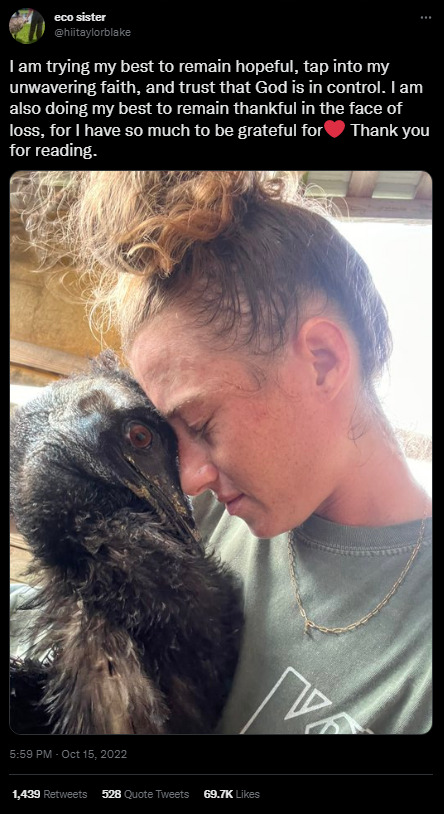
In response to concerns, Blake explained that “Emmanuel freaks out whenever we approach him wearing a mask” and that the farm is on a state-mandated quarantine for 150 days, which is the amount of time HPAI is estimated to survive in the environment under ideal conditions. This quarantine reportedly only allowed Blake, Blake’s girlfriend Kristian Haggerty, Blake’s family, and veterinary professionals to enter the property. “I have taken every precaution recommended by the FDA” Blake stated, referencing the Florida Department of Agriculture and Consumer Services (FDACS) rather than the Food and Drug Administration (FDA).
Many people, including HPAI experts, found this explanation unsatisfactory and instead decided to contact the FDACS and USDA directly. Both the FDACS and USDA work collaboratively to manage avian influenza outbreaks in Florida. Dr. Danielle Stanek of the Florida Department of Health clarified that the DOH can recommend that private individuals comply with CDC guidelines, which includes wearing full PPE when interacting with HPAI-infected birds, but they cannot mandate that they do so. Therefore, Blake’s decision to forgo PPE was hers to make, even if it wasn’t in accordance with the recommendations of the FDACS, CDC, USDA, and Florida DOH.
Just as discourse between experts and Emmanuel fans reached its peak, Blake announced that Emmanuel tested negative for HPAI. Instead, Emmanuel’s sudden decline was attributed to stress. “Emus are incredibly susceptible to stress. He was incredibly overwhelmed by the state coming in and euthanizing our flock . . . He stopped eating the day they depopulated.” His lingering issues- the inability to stand or walk independently, twisted neck (torticollis), continued inappetence and dehydration, and lethargy- were caused by a nighttime collapse that left Emmanuel “thrashing on the ground for hours, trying to get himself up”. “He never once had a single symptom of AI, other than not eating”, Blake stated.
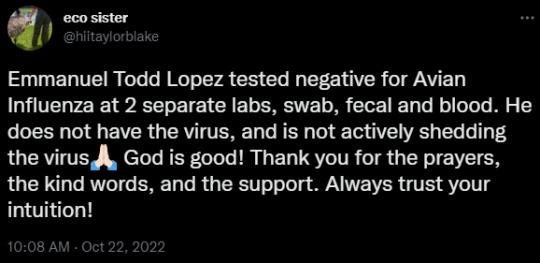
HPAI symptoms in birds varies depending on the species and the individual. In chickens, HPAI often presents as respiratory and digestive distress, followed quickly by death. In other poultry species, symptoms may also include the nervous system, causing “tremors, twisted necks, paralyzed wings, laying down and pedaling”. Ratites- referring to the diverse group of keel-less birds that include emus, ostriches, rheas, kiwis, and cassowaries- also tend to develop neurological symptoms. Notably, emus can present with twisted necks (torticollis), ataxia (discoordination), leg and wing paralysis, inability to stand, decreased food and water consumption, purple discoloration or swelling of the legs and head, and lethargy. This corresponds with many of the symptoms Blake has documented in Emmanuel. And it should, considering that Emmanuel did test positive for HPAI.
Test results completed on October 27th, 2022 at the USDA’s National Veterinary Services Laboratories showed that Emmanuel’s serum sample, collected six days after the start of the outbreak, contained antibody levels that were consistent with recent infection.
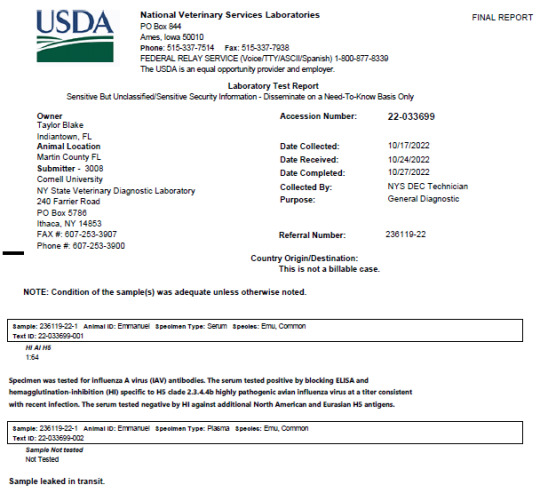
When Blake announced Emmanuel’s stress diagnosis, she was likely relying on information provided by a rapid test, which can provide results within 48 hours. These tests detect viral proteins that indicate active infection and virus shedding. Serology tests, on the other hand, look for the presence of antibodies produced in response to infection, not necessarily active infection. For an indeterminate number of days prior to the sample collection (October 17, 2022) Emmanuel had an active HPAI infection that, rather than stress, likely led to his rapid decline.
Why, then, was Emmanuel not included in the state’s cull on Knuckle Bump Farms? An email between Dr. Michael Short, the FDACS’ Animal Industry Director, and Kassandra Curiel of the FDACS’ Office of the Commissioner, answers this question. Dr. Short states that “USDA guidance is that ratites (emus and ostriches), black swans and exotic pet birds do not have to be euthanized due to lower risk”. Blake echoes this on her Twitter, when she says that “the state only focused on the “super spreaders” which are poultry species and ducks. Ratites aren’t included because they typically aren’t as susceptible.”.
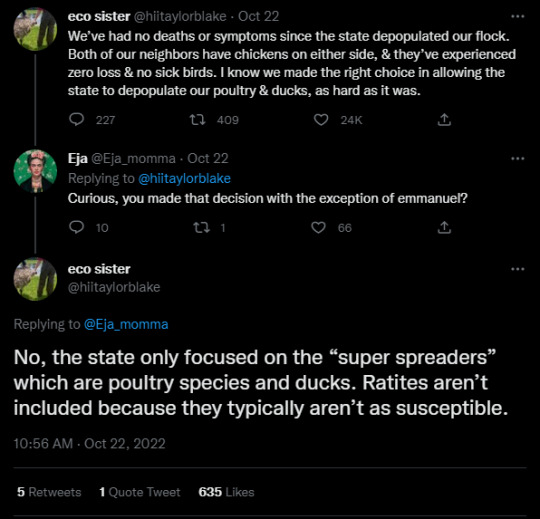
This allowed Knuckle Bump Farms’ four emus (Emily, Eliza, Elliot, and Emmanuel) and three black swans (two unnamed females and Rico), to be exempted from the cull. I cannot find any reference, either in USDA literature or anywhere else, that supports Dr. Short’s statement. In fact, all the literature that I reviewed and all the experts I talked to during my research only confirmed the devastating effects that HPAI can have on both ratites and black swans. This, coupled with the fact that three of Knuckle Bump Farms’ four emus and two of their three black swans died when “the virus hit them extremely hard and very quickly”, calls Dr. Short’s statement into question.
The USDA was also unable to substantiate Dr. Short’s statement. When asked how exemptions to culls were determined they explained that, rather than look at individual species, the USDA classifies HPAI-infected domestic birds as either commercial, backyard poultry, or backyard non-poultry. These definitions ascribe risk of potential HPAI spread by determining the level of contact a poultry premise has with other poultry premises. If a private farm or private household, where the poultry does not have any contact with poultry beyond the property, has an outbreak then they are classified as a non-poultry premises, even if they have chickens, turkeys, or other poultry birds. These non-poultry premises can thus be exempted from culling all their birds by being placed on quarantines by state officials, provided that they adhere to the quarantine and continue to not have contact with any poultry facilities. Knuckle Bump Farms does not sell poultry products; therefore, they were classified as backyard non-poultry and eligible for quarantine. The FDACS seems to have added their own interpretation onto this guidance when they specify ratites, black swans, and exotic pet birds as “lower risk”. I reached out to Dr. Short for comment but received no response.
This isn’t the only time Dr. Short and, by extension, the FDACS demonstrated faulty logic. In that same email between him and Curiel, Dr. Short used this comparison to explain why a citizen’s concern about Emmanuel’s exemption from the cull was unfounded.
“I have heard of only one report of a clinically ill human, over the past 1.5 years of a national response to the current avian flu outbreak. The risk of HPAI to the owner is much less than occurred with household pets that tested positive for SARS-CoV-2 (Covid). I am assuming no one would advocate to euthanize all pets testing positive for Covid (At least I have not heard of anyone asking us to euthanize pets).
The risk of avian influenza is constantly occurring with all the wild birds in South Florida. My understanding (not being a human health expert) is the risk to people, especially children and those immuno-compromised at public or private lakes, ponds and waterways from the AI being shed by water fowl is much greater than the sick emu at knuckle bump farm.”
Dr. Ben Golas, a VMD and postdoc with the USGS who is currently working on avian influenza research, weighed in. “It’s a bit like comparing apples and oranges to talk about risk of transmission of COVID vs. HPAI. With COVID, our primary concern is human-to-human contact. [. . .] With HPAI, farm animals are euthanized not only because the disease spreads within the farm flock like wildfire, but also to prevent spreading infection locally to other farms, because HPAI virus can be stable in the environment.”
The CDC agrees. “There is no evidence that animals play a significant role in spreading SARS-CoV-2, the virus that causes COVID-19, to people. […] It’s important to remember that people are much more likely to get COVID-19 from other people than from animals. There is no need to euthanize or otherwise harm animals infected with SARS-CoV-2.” When it comes to HPAI, however, they emphasize that human-to-human spread is rare and often limited to only a few individuals. Bird-to-human transmission is the primary method of human infection, with each new infection increasing the risk that a new, more virulent strain will emerge. This, along with the potential for massive bird-to-bird outbreaks that could devastate both wildlife and industry, is why complete depopulation (euthanasia) is standard for HPAI and not COVID-19.
The FDACS seems to be operating on contradicting and unsubstantiated information when it comes to managing HPAI outbreaks. Unsurprisingly, the employees seem equally conflicted in their internal emails regarding Knuckle Bump Farms. One Florida USDA representative noted, while forwarding a citizen concern about Blake’s lack of PPE, that “her face is real close to a bird that has HPAI”. Another USDA employee responded “actually, in one of the pictures she appears to be kissing it on the head.”. Dr. Kendra Stauffer of the USDA wrote, “. . . part of the allowing the pet bird to live was that there were rules the owner was to follow from DOH, which clearly she is not”.
Other employees, however, were eager to show their support. Commissioner Nikki Fried of the FDACS posted a photo of her, Blake, and Haggerty, and later posted a photo of herself drinking Knuckle Bump Farms’ branded beer while wearing an Emmanuel t-shirt.
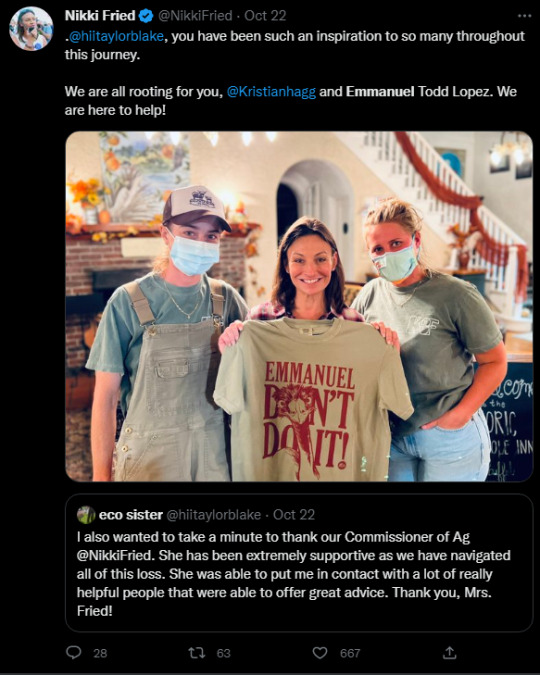
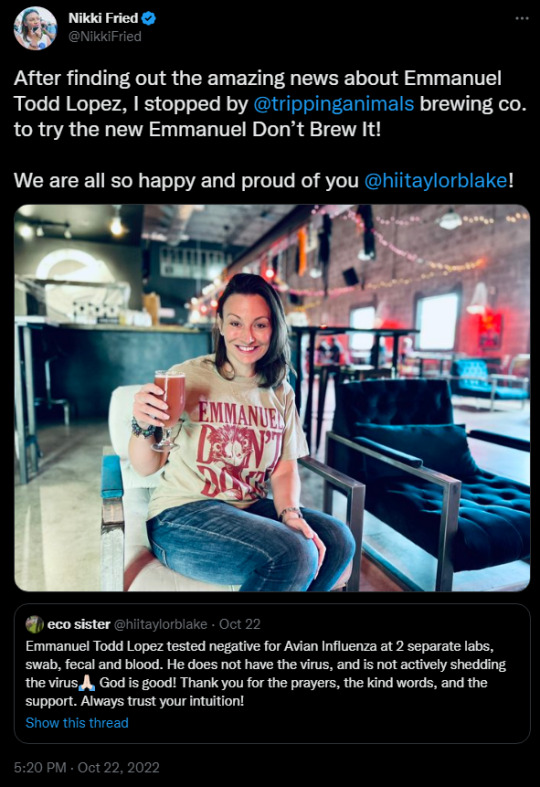
Fried’s support generated a lot of concern, particularly amongst local farmers. One Florida emu farmer stated, “my disappointment and concern is 100% with the actions of Nikki Fried as Agricultural Commissioner to allow some birds to be exempt from depopulation, including emus, for no quantifiable reason. Emus are susceptible to HPAI. Emus in other states have contracted HPAI in this current outbreak and they either died on their own or were put down. Research shows they are susceptible to HPAI, and can spread it to other birds and humans. The decision by Fried and FDACS makes no sense and it sets a dangerous precedent.”
Considering that Blake has over 847.4K followers on Twitter, 938K on Instagram, and 2.4 million on TikTok, the precedent the FDACS and USDA have set here is, indeed, dangerous. Many of Blake’s followers learned about avian influenza for the first time through her documentation of Emmanuel’s illness and the state’s response to the outbreak. “I watch for Emmanuel updates every day! This has also been a great lesson for many people in farming education.”, one follower said. Another echoed this sentiment, saying “Thank you for taking the time to let us know what’s going on, and answering questions. You truly are an educator”.
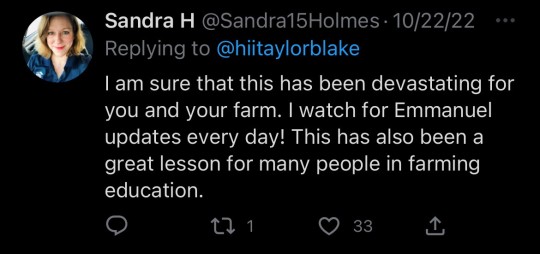
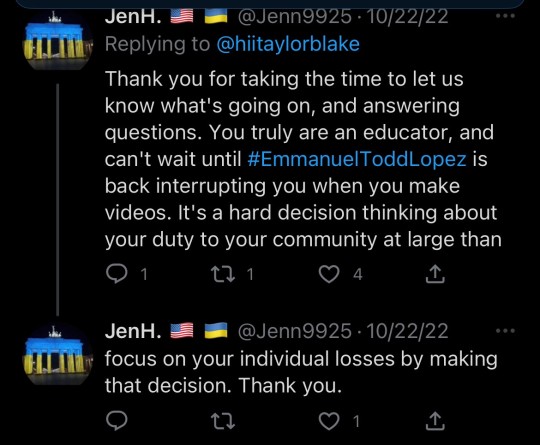
Herein lies the problem. Knuckle Bump Farms is a small, backyard operation. Through social media, however, they reach millions. This specific outbreak of HPAI and its subsequent (mis-)management by the FDACS and USDA has now set the standard for many, rather than the exception. Blake’s public failure to comply with PPE recommendations, the lack of transparency regarding Emmanuel’s true diagnosis, a similar lack of transparency within the FDACS and USDA regarding this outbreak, exemptions to cull protocols made with seemingly no supporting data, and a publicly-elected official openly (and financially) supporting Blake through this process, all pose a serious threat to public confidence in HPAI management and future public health. The concerns of farmers, virologists, public health workers and organizations, wildlife rehabilitators, and animal sanctuaries have been ignored, particularly when they asked whether Emmanuel’s fame and the risk of public backlash led to the FDACS’ decision to leave him and several other symptomatic birds alive. It seems, through this research, that there is more support for this theory than the narrative we’ve been provided until now. It is my hope that, with the publishing of this information, the very real concerns raised by people directly effected by HPAI will be given the weight they deserve.
Please take this opportunity to learn about avian influenza from reputable sources:
Protecting Birds from Avian Influenza
Avian influenza and PPE
CDC Avian Influenza
USDA HPAI Response Plan
Florida Avian Influenza Update (Oct 2022)
A huge thank you to the following experts who generously answered my questions: Dr. Ben Golas, Dr. Jim Wellehan, and Dr. Jennifer Riley.
2K notes
·
View notes
Text
"One of the many benefits of solar power is the speed and scale at which it can be deployed. But, despite this, some states still manage to exceed expectations. Viet Nam is one such place. In 2010, the South East Asian country was ranked 196th in the world according to its solar energy capacity. By 2021, Viet Nam had climbed to ninth in the global rankings, jumping above both Spain and France, an astonishing ascendancy.
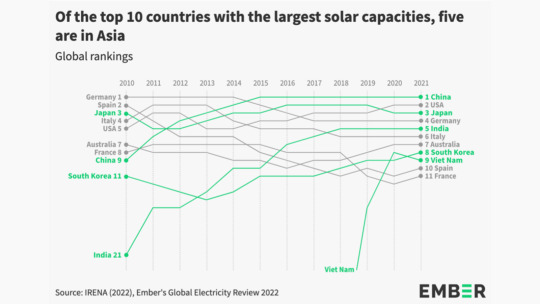
In 2018, Vietnamese solar generation was close to zero TWh, but in 2022, solar accounted for 11 percent (14 TWh) of electricity demand from January to June. The rapid growth of solar throughout Viet Nam is estimated to have saved the nation $1.7 billion in potential fossil fuel costs – and this is without factoring in the human, social and environmental harms created through burning fossil fuels.
Viet Nam’s ability to rapidly scale up solar generation over the last decade is down to a combination of factors, including supportive government intervention, a positive policy environment and international collaboration. Targeted investment in key infrastructure was essential, and worked alongside a growing demand for cheap, secure, and clean energy from Vietnamese citizens and businesses. The foundations have been set for Viet Nam to continue its rapid growth in solar, climbing further up the global rankings.
Lessons for rapid transition: How did they do it?
A generous policy mix including tax breaks and a bold feed-in tariff to enable the scaling up of solar generation and bring in new actors.
Investing in transmission and distribution to ensure that the added solar capacity can meet rising energy demand.
Sky-high demand from citizens and businesses driven by concerns over air quality and the availability of affordable household solar systems for clean, reliable and cheap electricity."
-via Rapid Transition Alliance, January 25, 2023
#vietnam#viet nam#fossil fuels#solar power#solar#clean energy#sustainability#air pollution#carbon emissions#infrastructure#asia#southeast asia#good news#hope
674 notes
·
View notes